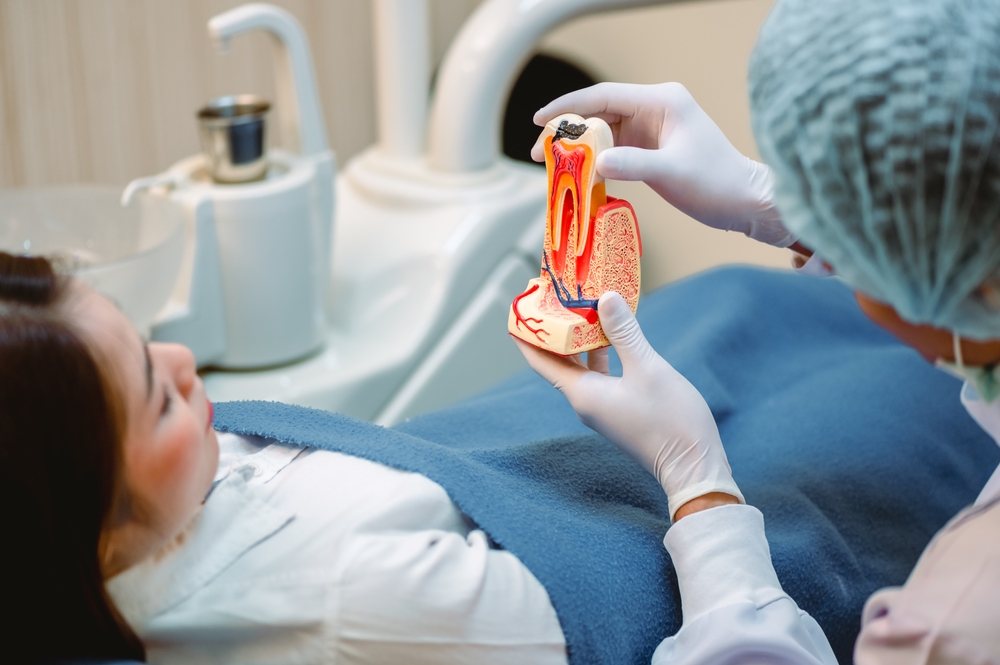If you’ve been told you need a root canal, you might be feeling a bit anxious or unsure about what the procedure entails. Root canal treatment, also known as endodontic therapy, is a common dental procedure designed to save a tooth that is severely infected or decayed. Understanding the process, its necessity, and what to expect can help alleviate some of the apprehension surrounding it.
What Is Root Canal Treatment?
Root canal treatment involves removing the infected or damaged pulp from inside a tooth, cleaning and disinfecting the space, and then filling and sealing it. The pulp is the innermost part of the tooth, containing nerves, blood vessels, and connective tissue. When the pulp becomes infected or inflamed due to deep decay, repeated dental procedures on the tooth, or a crack or chip, it can cause severe pain and lead to an abscess if not treated.
Why Is Root Canal Treatment Necessary?
When the pulp of a tooth is damaged, it cannot repair itself, and the infection can spread, causing more significant problems. Symptoms indicating the need for a root canal include:
- Severe tooth pain when chewing or applying pressure.
- Prolonged sensitivity to hot or cold temperatures.
- Darkening or discoloration of the tooth.
- Swelling and tenderness in the surrounding gums.
- A persistent or recurring pimple on the gums.
Without treatment, the infection can spread beyond the tooth to the surrounding tissues, leading to more severe pain and potentially causing systemic issues if the bacteria enter the bloodstream. Root canal treatment helps to eliminate the infection, relieve pain, and save the natural tooth, which is always preferable to extraction and replacement.
The Root Canal Procedure: What To Expect
1. Consultation and Diagnosis: Your dentist or endodontist will start with a thorough examination, which may include X-rays to assess the extent of the infection. They will explain the procedure, answer any questions, and discuss anesthesia options to ensure your comfort.
2. Anesthesia: Local anesthesia is administered to numb the tooth and surrounding area. This ensures that you won’t feel pain during the procedure.
3. Accessing the Pulp: The dentist will place a rubber dam around the tooth to keep it dry and free from saliva. An opening is then made in the crown of the tooth to access the pulp chamber.
4. Cleaning and Shaping the Root Canals: Using specialized instruments, the dentist will remove the infected or inflamed pulp, clean the inside of the root canals, and shape them for filling.
5. Filling the Canals: The cleaned and shaped canals are filled with a biocompatible material, usually gutta-percha, which is a rubber-like material. The opening in the tooth is then sealed with a temporary filling.
6. Restoration: After the root canal treatment, the tooth needs to be restored to its full function and appearance. This usually involves placing a crown over the tooth to protect it and restore its strength.
Aftercare and Recovery
After the procedure, it’s normal to experience some sensitivity or discomfort, which can be managed with over-the-counter pain medications. Your dentist will provide specific aftercare instructions, including tips on maintaining oral hygiene and foods to avoid while your tooth heals.
Most patients can return to their normal activities the next day, but it’s important to avoid chewing with the treated tooth until it has been fully restored with a crown. Good oral hygiene practices, such as regular brushing, flossing, and dental check-ups, are essential to ensure the long-term success of the root canal treatment.
Benefits Of Root Canal Treatment
The primary benefit of root canal treatment is that it saves your natural tooth, which has several advantages:
- Maintains Natural Appearance: Your own tooth is better than any artificial replacement.
- Efficient Chewing and Biting: Restored teeth can function just like your other natural teeth.
- Protects Other Teeth: Saving the natural tooth prevents the issues that come with shifting teeth due to a gap.
Root canal treatment is a highly effective procedure designed to eliminate infection and save a tooth that would otherwise need to be extracted. While it may seem daunting, understanding the process and benefits can help ease your concerns. If you experience any symptoms of an infected tooth, consult your dentist promptly to discuss whether a root canal might be the right solution for you. By addressing the issue early, you can relieve pain, prevent further complications, and preserve your natural smile.
Medical Arts Dentistry Is Your Dental Care Provider
At Medical Arts Dentistry, we are dedicated to the long-term dental health of Garden City, Richmond Hill, and the surrounding Savannah communities. We offer family dentistry for children and seniors, athletic mouthguards, dental sleep medicine, as well as treatments for TMJ and orofacial pain. If you’re ready for a regular check-up and professional cleaning, or a consultation about our other cosmetic dentistry options or dental restoration treatments, call 912-355-0605 for our Savannah location and 912-921-0401 for our Georgetown location.

